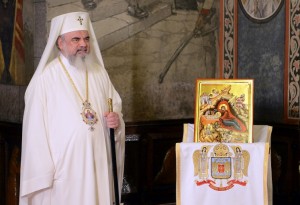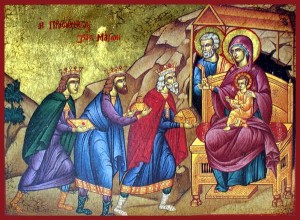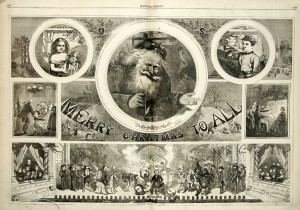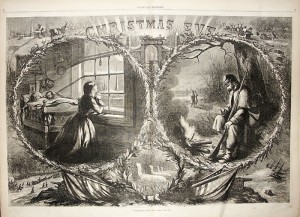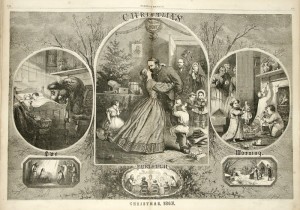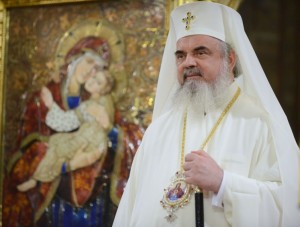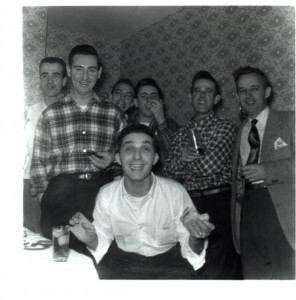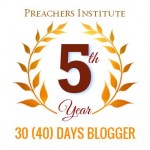PASTORAL LETTER ON THE FEAST OF THE LORD’S NATIVITY 2014
† NICOLAE
by the mercies of God
Archbishop of the Romanian Orthodox Archdiocese in the Americas
To our beloved Clergy and faithful Orthodox Christians,
peace and joy from Christ the Lord,
and from us a hierarchical blessing.
Now after Jesus was born in Bethlehem of Judea in the days of Herod the king, behold, wise men from the East came to Jerusalem, saying, “Where is He who has been born King of the Jews? For we have seen His star in the East and have come to worship Him.” (Matthew 2:1-2)
Very Reverend Fathers,
Beloved Faithful,
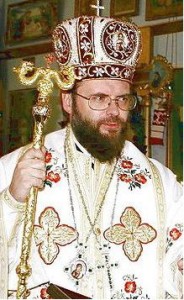 On this glorious feast I too proclaim the wondrous Nativity in Bethlehem of Judea, and I invite you to worship with understanding the One who was revealed as God and man. At a certain time and place God came down to earth. The Magi from the East understood the vision of the star, and desired to receive the revelation and to be partakers in this great event. It is fitting that we too with them should discover its meanings.
On this glorious feast I too proclaim the wondrous Nativity in Bethlehem of Judea, and I invite you to worship with understanding the One who was revealed as God and man. At a certain time and place God came down to earth. The Magi from the East understood the vision of the star, and desired to receive the revelation and to be partakers in this great event. It is fitting that we too with them should discover its meanings.
The coming of the Messiah had been foretold by the Old Testament prophets. The Prophet Isaiah reveals that the Messiah will be born of the seed of Jesse, the father of King David: “There shall come forth a Rod from the stem of Jesse, and a Branch shall grow out of his roots” (Is. 11:1). Jeremiah says, “Behold, the days are coming,” says the Lord, “that I will raise to David a Branch of righteousness; a King shall reign and prosper, and execute judgment and righteousness in the earth” (Jer. 23:5). The precise location of this raising up of the Messiah is told by the Prophet Micah: “But you, Bethlehem Ephrathah, though you are little among the thousands of Judah, yet out of you shall come forth to Me the One to be Ruler in Israel” (Micah 5:1). This prophecy was known and invoked by the “chief priests and scribes of the people,” called by Herod to inform him about the birth of the “King of the Jews,” in the words of the Magi. A foreigner among the Jewish people, knowing little thus about the prophecies, Herod was troubled, and all Jerusalem with him, at the Magi’s question: “Where is He who has been born King of the Jews? For we have seen His star in the East and have come to worship Him.” The prophecies existed but they were forgotten and poorly understood. The Jews and their learned men were living in darkness and ignorance. Although members of the chosen people, chosen to give the Savior to the world, they did not comprehend the fulfillment of these prophecies. The wise and comprehending came to make clear the signs of the times and to worship the Messiah, thus fulfilling yet another prophecy: “The kings of Tarshish and of the isles will bring presents; the kings of Sheba and Seba will offer gifts. Yes, all kings shall fall down before Him; all nations shall serve Him” (Ps. 71:10-11).
Together with St. John Chrysostom we wonder: “How could the Magi know through the star that Christ is the King of the Jews?” For He was not the king of any earthly kingdom…. And He had nothing with Him that looked like a kingdom, no lance or shield, no horses or asses, nor any other such things” (The Sixth Homily on Matthew). Then the great preacher asks what was their motive in coming to worship Him: “After they had entered on so long a journey, and worshipped, and thrown all into confusion, they went away immediately. And what sign at all of royalty did they behold, when they saw a shed, and a manger, and a child in swaddling clothes, and a poor mother? And to whom moreover did they offer their gifts, and for what intent?”
The answer is given to us by this same father, John Chrysostom, who challenges us to understand the way God works. With the wise, with those who comprehend the mysteries of the heavens, God works through a sign. The luminous star was understood by the Magi as a revelation of God to them. But this wondrous movement of the star did not only involve their knowledge, but God Himself. “In my opinion,” continues St. John Chrysostom, “this was not only because of the star, but of God Himself, Who moved their souls, just as He did with King Cyrus when He caused him to free the Jews from bondage.” Thus the revelation of God is accomplished, working through signs that can be understood by the human being, but also revealing Himself to the soul, calling it to the fulfillment of those things that have been understood by the mind.
Very Reverend Fathers, Beloved Faithful,
In the guidance of the star, in the worship of the Magi, in their offering gifts to the Baby Jesus, we see the work of God with His creation. The Messiah came “in the fullness of time,” fulfilling the prophecies. Yet it was not the “scribes of the people” who recognized and received Him joyfully, but foreigners who knew how to interpret the signs of the times. The Messiah was born in a poor manger even though He was the King of Kings and Lord of Lords. The ignorance of those known as “scribes” made possible the discovery of the wisdom of the Magi, who brought Him royal gifts: gold, frankincense, and myrrh. Their human wisdom brought them to a spiritual wisdom, for God, St. John continues, “desired to call them by the sight of a star, that He might raise up their minds above their own thoughts. For after He had directed and guided them, and brought them to the manger, He no longer spoke to them through a star, but through an angel,” cautioning them to return to their own country by another route. The star was the means of this journey toward spiritual things, toward their personal discovery of God through the angel. And this encounter with God transformed them into apostles. St. John assures us that once they had proclaimed the Messiah before Herod, they arrived back in their own country as heralds of the Savior and teachers of their own fellow countrymen.
For us too, the spiritual journey of the Magi is an invitation to understand with our mind and our heart the realities in which we live. It is fitting that we should use wisdom like the Magi to discern the signs of the times. It is right that we should understand the revelation of God and desire to receive it and be partakers in the presence of God in the world. It is proper that we should offer our gifts to Christ the King, who comes to save us. It is right that we should desire to become His apostles, like the Magi, in this world estranged from God, lacking in love, and incomprehending of the divine message. And our proclamation cannot be any other than that of the angels to the shepherds in Bethlehem: “Glory to God in the highest, and on earth peace, goodwill toward men!” (Luke 2:14). We who receive Christ the Messiah who is born in the wretched manger should proclaim peace and understanding to the world. This proclamation is full of meaning for our world, troubled by war and the persecution of Christians. The Lord’s Nativity will thus be for us an occasion for renewed hope in God’s help and protection.
I extend to you a brotherly embrace in Christ the Lord, with my wish that you enjoy the holy days of Christmas, New Year’s Day, and Theophany in health, peace, and spiritual joys!
Many Years!
Your brother in prayer to God,
desirous of every heavenly good,
† NICOLAE
Chicago, the Feast of the Lord’s Nativity, 2014

